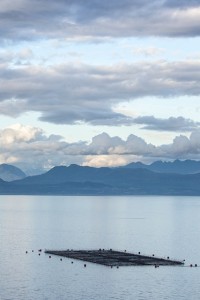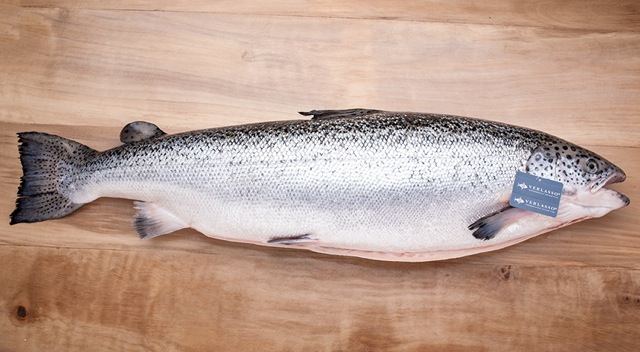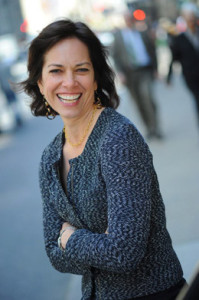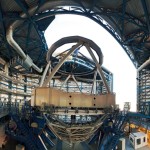By Lisa Palmer
I ate farmed salmon for years before thinking twice about it. Then about ten years ago, beginning with news reports from Ken Weiss, an environmental reporter with the Los Angeles Times, I learned about the chemicals and pollutants associated with farmed salmon. I began to understand the unsustainable nature of salmon aquaculture; in addition to antibiotics, pesticides and artificial dyes to color the flesh of the farmed salmon, I learned that what they ate—fish meal made from anchovies, sardines and menhaden– was quickly depleting forage fish from the world’s oceans.
the world’s oceans.
Fast forward to this past May in Laguna Niguel, California, at Fortune’s Brainstorm Green conference. Sustainably farmed salmon found its way onto my lunch plate. The fish, from Verlasso, a joint venture between DuPont and AquaChile, earned a “good alternative” rating last year from the Monterey Bay Aquariums Seafood Watch program—the first among Atlantic salmon raised in ocean pens to earn this distinction. Verlasso salmon is raised on fish meal that is just 25 percent wild fish and 75 percent Omega-3 rich yeast.
I caught up with Scott Nichols, the man behind the Verlasso venture, for a story in Future Food 2050. Here’s how it begins:
As a child living in Hawaii, Scott Nichols woke early. By 6 a.m., the 5-year-old boy had usually reeled in his first catch from a pre-dawn fishing expedition with his dad. The first week that he carried his bounty—a whole fish—into the family kitchen for breakfast, his father gave him an impromptu lesson in gutting and cleaning fish. And a love affair with seafood was born.
Much later in life, Scott Nichols found himself in the lucky position of being able to turn that love for fish into a business venture. As a biochemist with a doctorate from UCLA who also studied business at the Wharton’s Advanced Management Program at the University of Pennsylvania, Nichols was in charge of DuPont’s business development. It was 2006, and the company had created an innovation around bio-based omega-3 fatty acids: DuPont’s genetically modified yeast could substitute for fish oils and preserve the omega-3 fatty acids. But Nichols knew it was a breakthrough in another area as well. “In the blink of an eye, I realized that we could solve a big problem with salmon aquaculture,” says Nichols, who now directs Verlasso, a joint venture between DuPont and AquaChile—an aquaculture operation based in Patagonia—that was formalized in 2009. Before the partnership, DuPont had been involved in supplying the aquaculture industry but had no experience in aquaculture production.
Fish oil produced from wild-caught fish supplies critical nutrients that farmed salmon need to grow, but these wild-caught fish are harvested unsustainably. By 2006, salmon aquaculture was consuming some 80 percent of the world’s fish oil and still growing at a rate of 8 to 10 percent per year. Oily fish like anchovies, menhaden and mackerel provide the main source of fish oils, and their harvests are threatened as their populations deplete.
To read the complete story, go to www.futurefood2050.com.
“There seems to be precious little international enthusiasm to talk about how to reduce pressure on fisheries, but it is surely needed.” —Scott Nichols

 The eyes of the world are on Brazil now as world cup soccer kicks off in Sao Paulo. In my latest article for the science research journal
The eyes of the world are on Brazil now as world cup soccer kicks off in Sao Paulo. In my latest article for the science research journal